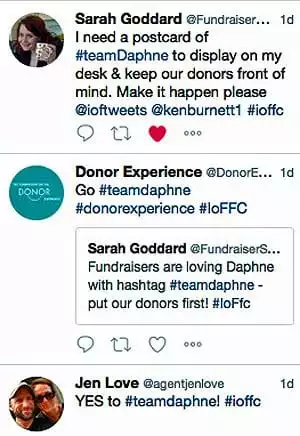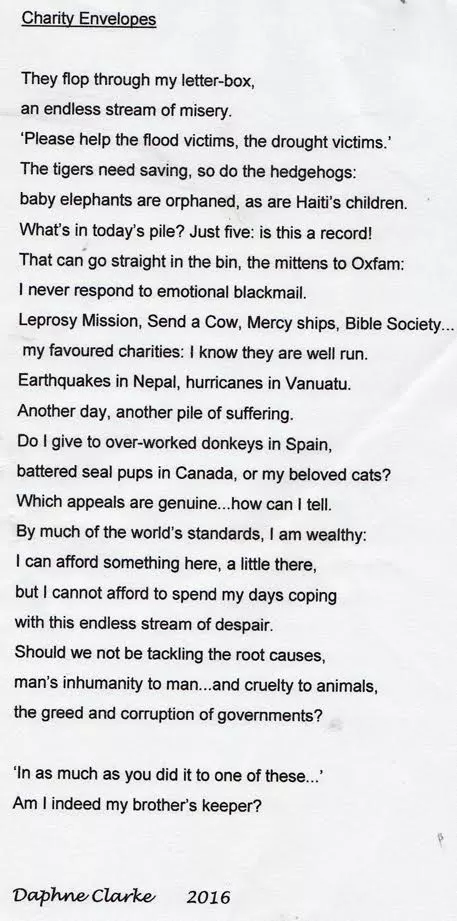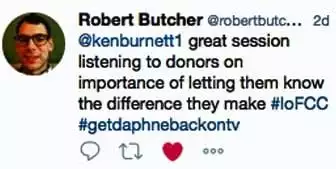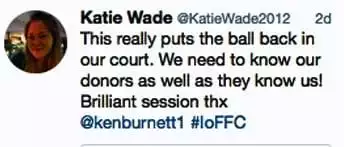Meet the donors
Some ‘who’d-have-thought-it?’ insights from listening to a few real supporters.
At the UK Institute of Fundraising’s National Convention last week I found myself chairing a big room session called ‘meet the donors’. Tasked to address a massive subject – what do donors really think about fundraisers and how they ply their trade – the five brave donors on our panel were obliged to face a large audience of fundraisers at the end of a long, hot day.
Daphne, Carol, Eden, Rachel and Deborah – real, proper donors each invited by one of the charities they support – all discharged their task with great charm, wit and perception. Though I’d been parachuted in quite late to chair the thing I found the job delightful and a revelation, as well as much more difficult than it looks when the Dimblebys do it. It was a great session because the donors were so articulate and clear and the respectful, attentive audience was so eager to hear them. And while often challenging, even critical, what these donors said seemed to go down well with our audience, I suspect because it was quickly evident that these donors really care.
OK, I have to qualify the second part of that second-last sentence, just a bit.
Some of the IoF volunteers (constant stalwarts of these events and generally reliable, in my experience), reported that some fundraisers left the session as it was starting, saying they didn’t wish to be told how to think and behave by a random panel of donors. Only a few, I’m sure: the exceptions that prove the rule. Later several in the audience expressed surprise that such sentiments can still be found anywhere. Perhaps it’s proof, were it needed, that there’s none so blind as those who will not see. Their loss. The majority who stayed were given a treat.
I wasn’t able to capture all that much of the conversation because for most of our hour I was struggling to maintain the impression that I had some control over the flow and direction of audience questions and the panel’s responses. So, I’m paraphrasing hugely. Some of these donors’ issues and concerns came up again and again.
Here’s what I noted from what they said:
• No pressure, ever. ‘I wouldn’t like my granny to be pressurised’, said one. Grandads too, I’m sure. No surprise there.
• ‘I want to make a real difference’. ‘Tell me about the difference I’m making’. The number of times this came up was a real thrill. It really is what matters most to donors. ‘Did my gift get through?’ Seemed fundraisers aren’t always great at answering this, for some on the panel.
• Feedback. This is how they see that difference. They all want communications that tell them what their support achieves. See Daphne’s poem, below.
• Integrity. Do the right thing. Always. Show your passion, but be led by your values.
• Respect. And sensitivity. No explanation needed.
• Listen. That’s invariably part of respect of course. But it’s worth stressing.
• Send less but better. Only intelligent communications. ‘We want to be informed and involved, but not too much’. Design it right and make it good.
One of the donors even stressed the need to get grammar and punctuation right – I could have leapt in the air! An impact report from the Children’s Society came in for particular appreciation. Again, the message seems to be, ‘show me the difference we’re making, don’t talk about how great the charity is or how it’s structured.’ They want to know how their donations change lives – who’d have thought, hmm?
• Know me and show me you know me.
• Premiums came in for a bashing, even though many on the panel were unaware that’s what they’re called. ‘Don’t send me stuff’ seemed to be the message. Daphne said passionately that she’s got so many sticky address labels she could spend all her time sticking them on envelopes and would still never be finished. Premiums, raffles and prizes diminish donating.

Some from the flood of generally appreciative tweets that followed the session are reproduced here, just to give you a taste.
Emotion came up a lot, mostly positively because all the panel confirmed their initial support for ‘their’ causes had come through personal emotional connection. But I felt at times emotion was talked of quite fearfully. I’m not sure any of the panel specifically called for very responsible use of emotion, but that was the gist (I may be biased, as the use and misuse of emotion is the theme of my Commission on the Donor Experience project no 6).
• Transparency and accountability. When donors discuss such things they tend to talk about being open, clear, honest and accessible.
• Admin and salaries. We didn’t go into it in detail but concerns were raised that these donors too don’t want their gifts lost on high admin and salary costs. The panel though were not unrealistic in their expectations and appreciated that prudent investment in effective administration is essential if gifts are to reach beneficiaries efficiently. And investment in fundraising makes sense if it grows the cake. A case of needing to tell the truth, and tell it well.
There was more for sure, but I failed to note it.
Daphne’s poem
At the end of the session one of our panel asked if she might read a short poem she’d written.

Charity Envelopes, by Daphne Clarke
Daphne clearly has fundraiser appeal which prompted some to give her her own hashtags, #teamDaphne and #getDaphnebackontv (she was recently on BBC TV’s The One Show). Daphne was mentioned in lots of tweets from the session, with great affection.
Some lines from Daphne’s poem seem to me to contain an insightful route to improving all donors’ experience.
‘…I can afford something here, a little there,
But I cannot afford to spend my days
Coping with this endless stream of despair.’
Indeed not. No donor should be left feeling like that, but I fear far too many are. Feedback. You made a difference. We need to get miles better at telling donors what their interventions achieve so they feel good, not bad. That’s the 5Fs – fundraisers have to be famous for frequent, fast, fabulous feedback.


Thank you, Daphne, Carol, Eden, Rachel and Deborah, for your commitment, courage, warmth and the lessons you shared. Hopefully most people reading this will be able to figure out quite a lot of what it is that donors want from us. Those who were there certainly could. And guess what, it’s not that far from what we’ve always known they wanted.
What’s truly incredible is that fundraisers now don’t have to ignore this, because it’s actually been said by donors. Hooray! Extraordinary! Who’d have thought?
© Ken Burnett 2017
For more on the donor-based approach to raising money see the project reports from the Commission on the Donor Experience. They can be found in summary here. The full reports are being added progressively to sofii.org as I type.
Advertisement





